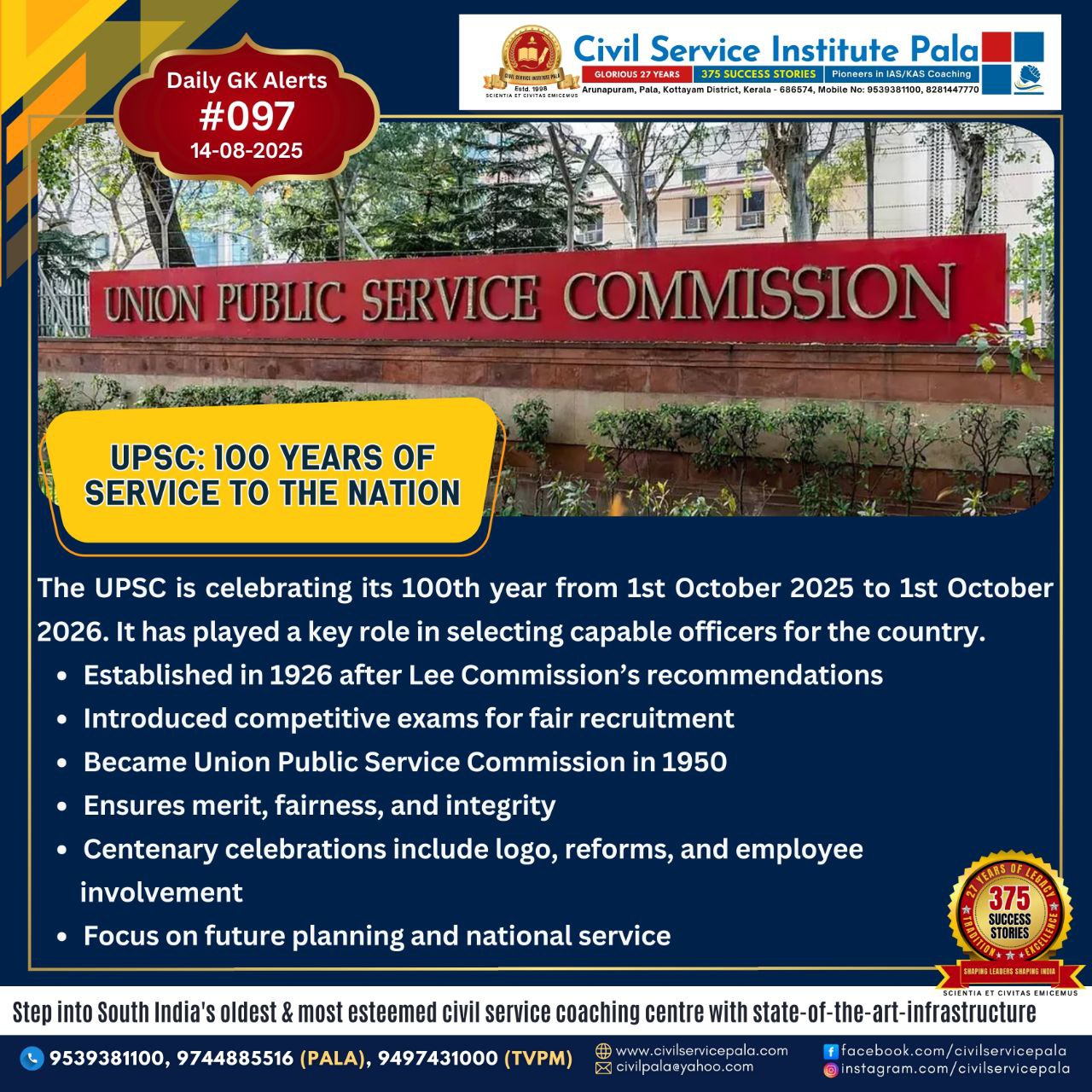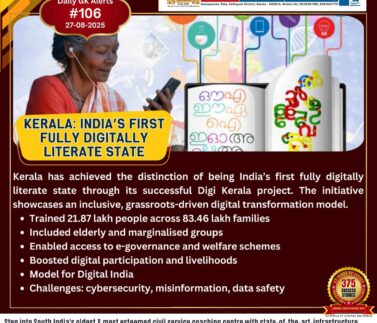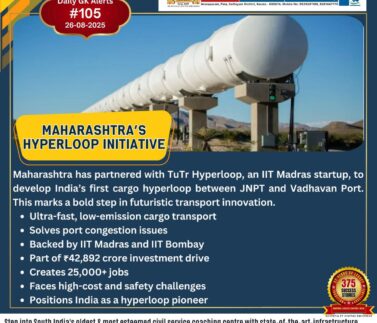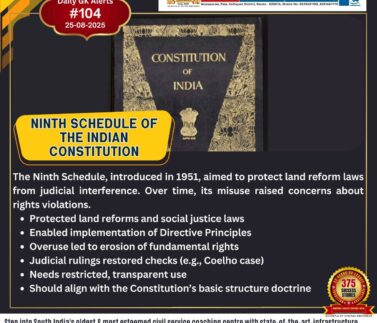
UPSC: 100 Years of Service to the Nation
UPSC: 100 Years of Service to the Nation
The Union Public Service Commission (UPSC), India’s premier recruiting body for civil services, will celebrate its Centenary Year from 1st October 2025 to 1st October 2026. This milestone marks 100 years of ensuring merit-based, transparent, and fair recruitment to top government posts in India.
Historical Evolution
Before 1854, civil service appointments were made through nomination under the East India Company. In 1854, the Macaulay Committee introduced competitive exams for the Indian Civil Service (ICS), conducted in London. Satyendranath Tagore became the first Indian to clear the exam in 1864.
By 1922, these exams were also held in India. On 1st October 1926, based on the recommendations of the Lee Commission (1924) and the Government of India Act, 1919, the Public Service Commission was formally established. Sir Ross Barker was its first chairman.
In 1937, it became the Federal Public Service Commission under the Government of India Act, 1935. After India’s independence, the Constitution of India gave birth to the Union Public Service Commission on 26th January 1950. Its powers are defined in Articles 315–323 of the Constitution.
Purpose and Role
UPSC’s main goal is to select deserving candidates for public services through rigorous exams and interviews. It works to uphold values like merit, integrity, fairness, and transparency. Over the years, it has played a key role in building a strong and capable administrative system in India.
Centenary Celebrations
As part of the 100-year celebration, UPSC will launch a new logo and tagline. Chairman Shri Ajay Kumar shared that various new reforms and initiatives are planned. Inputs from employees are also being taken to make the celebrations inclusive and meaningful.
UPSC’s Centenary Year is not just a celebration of its glorious past but also a time to plan for the future. It stands as a proud pillar of democracy, ensuring that the best minds serve the nation with honesty and commitment.



